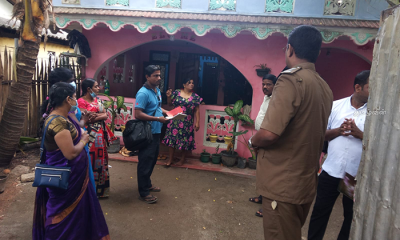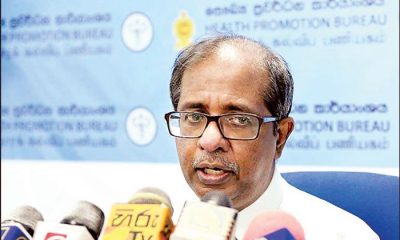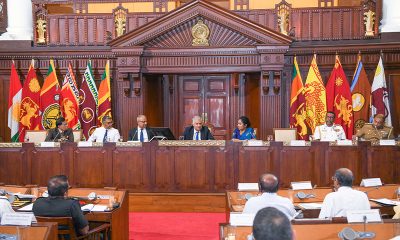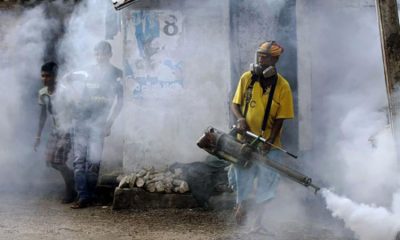News
Treatments for dengue: a Global Dengue Alliance to address unmet needs
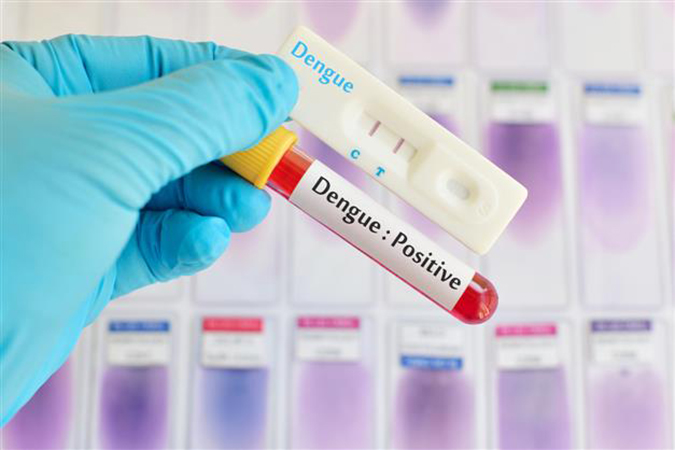
The importance of developing a treatment for dengue has largely been ignored, the Dengue Alliance said in a statement.However, a recently formed Global Dengue Alliance with several institutions in dengue-endemic countries, plans to accelerate research and development and deliver dengue therapeutics through an inclusive partnership.
Formation of this alliance is a major step towards developing a treatment for dengue, by aggregating resources from endemic countries, and ensuring engagement, scientific leadership, clinical guidance, and political interest in these countries.
Dengue is currently the most rapidly spreading mosquito-borne viral infection in the world, with half of the world’s population at risk of becoming infected. As a result of climate change, rapid urbanisation, and widespread international travel, the incidence of dengue is rapidly increasing, overwhelming healthcare systems in many lower-income countries. Climate change has increased the burden of dengue in endemic countries and has also led to expansion of this infection to new territories in Europe and North America.
Dengue is estimated to infect approximately 390 million individuals annually, with 96 million infections being symptomatic. So far, the only strategy adopted to reduce the burden of dengue is vector control. Although techniques such as using Wolbachia bacteria to reduce dengue transmission by Aedes mosquitoes look promising, it is evident that vector control alone is unlikely to be adequate to reduce the burden of dengue.
The currently available dengue vaccines (CYD-TDV and TAK-003) have been shown to reduce hospitalisations, especially in dengue-seropositive individuals, but lack efficacy against some dengue virus serotypes. Furthermore, CYD-TDV showed a higher incidence of severe dengue in dengue-naive vaccine recipients, and both vaccines show some degree of waning immunity with time, especially in seronegative individuals. Therefore, an integrated approach that comprises vector control, use of safe and effective vaccines, and an effective treatment is needed to face the growing challenges of dengue infection.
Efforts focused on finding a treatment have been scarce, with some investigator-led clinical trials conducted, and a few performed by pharmaceutical companies. The importance of developing a treatment for dengue has largely been ignored. The Drugs for Neglected Diseases initiative, which is focused on finding novel affordable treatment solutions for neglected tropical diseases since its inception in 2003, has recently formed a Global Dengue Alliance with several institutions in dengue-endemic countries, including the Faculty of Medicine at Siriraj Hospital, Mahidol University in Thailand; the Ministry of Health in Malaysia; the Translational Health Science and Technology Institute in India; the Oswaldo Cruz Foundation in Brazil; and the Federal University of Minas Gerais in Brazil. The mission of this alliance is to accelerate research and development and deliver dengue therapeutics through an inclusive partnership.
It aims to deliver a new treatment for dengue, within five years, from repurposed drugs and combinations (including novel antivirals from pharmaceutical companies). This alliance is co-created, co-owned, and co-funded by dengue-endemic countries, with a tiered governance mechanism allowing collaborative decision making at different levels. The organisations have formed a preclinical working group, a clinical working group, and a translational working group for effective communication and scientific planning.
All three working groups feed into the Joint Steering Committee, which is responsible for delivering on the vision and mission of the alliance. The partners of this alliance share knowledge, experience, technologies, and capabilities to jointly validate preclinical assays with the ambition in the initial phase to identify currently available drugs that can be repurposed for use as dengue therapeutics. In parallel, clinical trials for these drug candidates are being designed using the expertise of clinicians in these countries who have been treating patients with dengue for many years, with initiation planned by the end of 2023.
Formation of this alliance is a major step towards developing a treatment for dengue, by aggregating resources from endemic countries, and ensuring engagement, scientific leadership, clinical guidance, and political interest in these countries.
The different working groups and the steering committee coordinate efforts to address gaps in knowledge, such as epidemiology (specifically in Africa), biomarkers and diagnostics, clinical trials, and regulatory framework, while promoting open science. Although currently the alliance has a small number of partners, it is open to collaborations with new partners and key stakeholders in therapeutics and diagnostics.
Working with and aligning many partners and stakeholders to deliver objectives in a new model of collaboration is challenging, as is filling the existing knowledge gaps and need for integration, and leveraging information from different geographies and epidemiological settings. Furthermore, doing clinical trials aimed at treating dengue disease is challenging due to the seasonal nature of the disease, and with climate change, disease patterns could become more unpredictable.
Although this approach is likely to accelerate development of a treatment, funding remains a challenge. With climate change becoming more of a concern in high-income countries, there is an increasing possibility that many global funding organisations will acknowledge the true burden of dengue, the devastation it causes to health systems and patients in endemic countries, and, therefore, the importance of funding initiatives to accelerate the development of new treatments for dengue.
Latest News
Advisory for Heavy Rain issued for the Central, Uva and Sabaragamuwa provinces and in the Ampara, Batticaloa and Polonnaruwa districts

Advisory for Heavy Rain Issued by the Natural Hazards Early Warning Centre at 12.00 noon on 21 February 2026 valid for the period until 08.30 a.m. 22 February 2026
Due to the low level atmospheric disturbance in the vicinity of Sri Lanka, Heavy showers above 100 mm are likely at some places in the Central, Uva and Sabaragamuwa provinces and in the Ampara, Batticaloa and Polonnaruwa districts and fairly heavy showers above 75 mm are likely at some places elsewhere.
Therefore, the general public is advised to take adequate precautions to minimize damages caused by heavy rain, strong winds and lightning during thundershowers.
News
Ravi demands full disclosure on Lanka’s usable reserves, flags forex leakages
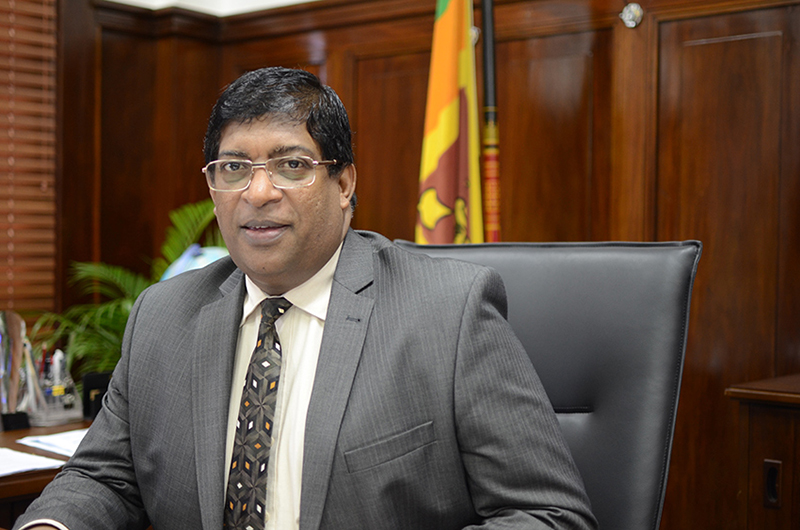
Opposition MP Ravi Karunanayake on Wednesday called for an urgent government statement to Parliament on the integrity and usability of Sri Lanka’s Gross Official Reserves (GOR), raising concerns over foreign exchange leakages and regulatory consistency under the Foreign Exchange Act No. 12 of 2017.
Raising the issue under Standing Order 27 (i), Karunanayake urged the Government to provide a comprehensive disclosure on the composition, encumbrances and deployability of the country’s reserves, as well as on the Central Bank’s oversight of foreign currency transactions.
“Reserve credibility depends not merely on headline numbers, but on transparency, enforceability and consistency in regulation,” the MP told the House.
He sought clarification on the latest reported GOR figure and the net usable reserves after excluding encumbered assets, swaps and pledged balances. He also requested details of annual revenue earned on reserves from 2023 to 2025.
Following are the questions raised by MP Karunanayake:
1. What is the latest reported GOR figure, and what is the net usable reserve after excluding encumbered assets, swaps, and pledged balances? What is the revenue earned on are GOR 23-25 per year?
2. Provide a separate and detailed breakdown of GOR, including: (a) Monetary gold (quantity and valuation basis) is it real gold or gold paper? (b) Foreign currency assets by major currency and instrument; (c) SDR holdings; (d) IMF reserve position; (e) Foreign currency swaps, specifying counterparty type, principal amount, tenure, maturity profile, and all-in cost; (f) Domestic swaps, specifying amount, tenure, rollover terms, collateralisation, and effective cost.
3. Of the total reserves reported, how much is encumbered, swap-backed, or otherwise not immediately deployable for debt servicing or currency stabilisation?
4. What SLR spread, fee, or margin does the Central bank apply when buying or selling USD to the Government for reserve accumulation and external debt servicing and what total profit or gain has the C.bank realised from such transactions during the past three financial years? Advice per year.
5. Is the Central Bank subject to continuous and statutory audit by the Auditor General? If so, will the Government table the most recent audit report, specifying audit scope, sample size, reserve confirmations, swap verification and gold custody validation?
6. What triggered the recent circular warning domestic institutions on foreign currency transactions?
7. Has the C.bank quantified foreign exchange and tax revenue losses resulting from Sri Lanka-based businesses routing credit card and commercial payments through overseas payment gateways?
8. If domestic entities are regulated strictly, why has a binding circular not been issued against noncompliant business entities using foreign payment gateway arrangements that divert foreign exchange outside Sri Lanka’s regulated banking system?
The government asked for two weeks’ time to respond to the queries.
by Saman Indrajith
News
Sajith exposes highly questionable coal imports from South Africa in 25 vessels; calls for independent probe
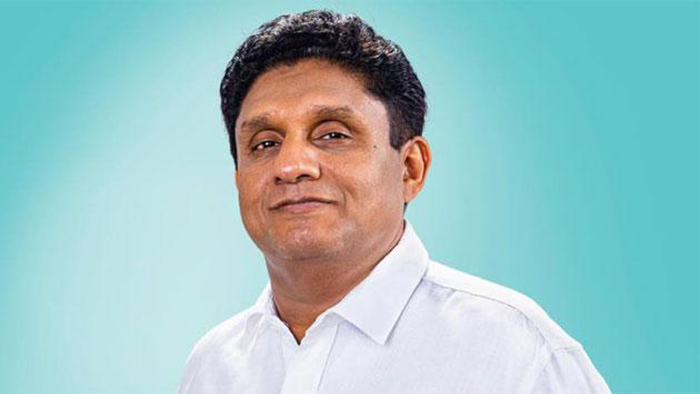
Opposition Leader Sajith Premadasa yesterday alleged in Parliament that eight recently imported coal shipments were substandard and called for an independent probe into the matter.Speaking in the House, Premadasa said Sri Lanka typically requires 36–38 coal shipments annually. While 11 Russian shipments received so far had raised no concerns, he claimed that 25 vessels ordered from South Africa under a new tender were facing quality issues.
He cited combustion reports from the Norochcholai Coal Power Plant showing that the eight shipments already received under the new tender failed to generate the expected 300 megawatts per unit. According to the MP, the outputs were: 285 MW, 290 MW, 260 MW, 295 MW, 285 MW, 270 MW, 275 MW, and 255 MW.
“These are scientific data generated automatically through boiler combustion reports that cannot be altered,” Premadasa said, asserting that the figures indicate the coal supplied was below required standards.
He warned that low-quality coal could increase fuel consumption, raise operational costs, and damage equipment. Any shortfall in power generation, he said, would necessitate additional coal imports or greater reliance on diesel power, ultimately driving up electricity tariffs for consumers.
“The loss will have to be borne by the electricity consumer,” Premadasa said, urging the government to clarify whether the shipments met required specifications.
He also criticized delays and changes in tender requirements, alleging that supplier eligibility criteria had been relaxed to allow non-standard providers.
by Saman Indrajith
-

 Life style7 days ago
Life style7 days agoMarriot new GM Suranga
-

 Business6 days ago
Business6 days agoMinistry of Brands to launch Sri Lanka’s first off-price retail destination
-

 Features7 days ago
Features7 days agoMonks’ march, in America and Sri Lanka
-

 Features7 days ago
Features7 days agoThe Rise of Takaichi
-

 Features7 days ago
Features7 days agoWetlands of Sri Lanka:
-

 News7 days ago
News7 days agoThailand to recruit 10,000 Lankans under new labour pact
-

 Latest News1 day ago
Latest News1 day agoNew Zealand meet familiar opponents Pakistan at spin-friendly Premadasa
-

 Latest News1 day ago
Latest News1 day agoTariffs ruling is major blow to Trump’s second-term agenda


